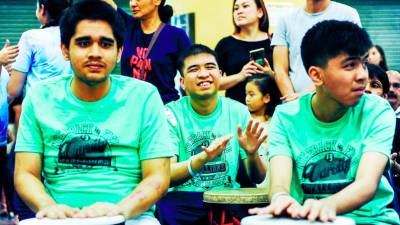IN a classroom in Malaysia, a boy with autism sits quietly, avoiding eye contact and struggling to participate in group activities.
Yet, when a drum is placed in his hands, his face lights up. He begins to tap out a steady rhythm and soon his classmates join in. For the first time, he feels connected to the group, not through words but through music.
As Malaysia advances its commitment to inclusive education under Budget 2026, inclusion must be understood as not only about access but also ensuring every child feels they belong and can participate meaningfully.
To achieve this, we need creative approaches that go beyond textbooks and exams. Music may be one of the most powerful yet underutilised tools to help children with special needs thrive in the classroom. As a universal language, music transcends disability and background, giving children new ways to express themselves, connect with peers and engage in learning.
Through rhythm, melody and movement, music breaks down social barriers, reduces stigma and fosters collaboration. It also supports memory, emotional growth and motor skills, helping children succeed on their own terms. Most importantly, music creates spaces where children with special needs are not merely present but truly included as valued members of the learning community.
To make music a true part of inclusive education, we need more than occasional singing sessions or annual concerts. What Malaysia truly needs is a structured music education curriculum that integrates music into everyday learning and teaching.
The key to making such a curriculum successful is flexibility. Every child with special needs is different. By tailoring music activities to suit diverse abilities, strengths and interests, teachers can ensure that every child has an opportunity to participate meaningfully. This flexibility promotes inclusion while building confidence and a sense of belonging among children with special needs.
More importantly, a structured, inclusive music curriculum does not depend on expensive instruments or advanced technology. With appropriate training, teachers can transform simple, everyday musical tools into powerful resources for learning. When this happens, music becomes more than an activity; it becomes a pathway to learning, connection and genuine inclusion for every child.
Budget 2026 provides a valuable opportunity to make Malaysian classrooms more inclusive by strengthening infrastructure and resources while embracing creative approaches such as music.
Policy and funding could equip schools with basic instruments and teaching materials, alongside training for teachers to integrate music into their practice. Classrooms would be more engaging, joyful and connected, especially for students with special needs.
We can look to successful examples such as The Music Man Project, a UK-based charity that trains and supports students with special needs, enabling them to perform in professional venues such as the Royal Albert Hall. Their work highlights how music can develop skills while fostering identity and purpose, challenging public perceptions of what people with special needs can achieve.
Locally, we can take inspiration from Stefanus Lucas from SK Pendidikan Khas (P) Kota Kinabalu, RISE Educator Award 2025 recipient, who sees potential in his students, giving them a sense of identity, pride and purpose. Working with visually and hearing-impaired students, he established a specialised music room for them with limited resources and gave them a medium to express themselves confidently.
As a music educator who has worked with children with special needs, I see firsthand how research can play a vital role in shaping effective practices.
By investing in research, Malaysia can generate evidence-based strategies that ensure music is not just an occasional activity but a meaningful part of inclusive education.
Partnerships between schools, universities and community musicians can help translate this research into practice, creating sustainable and scalable impact.
If Budget 2026 invests in creative and holistic approaches like a structured music education curriculum, Malaysia can become a leader in inclusive education, a nation where every child, regardless of ability, is given the chance to find their voice.
Sometimes, that voice begins with a simple beat of a drum.
Dr Amanallah Soltani is a senior lecturer at the School of Education, Faculty of Social Sciences and Leisure Management, Taylor’s University. Drawing on his experience as a music teacher for students with special needs, he has published works on inclusive teaching practices and is currently developing a research proposal to design a music education curriculum tailored for special education. Comments: letters@thesundaily.com
